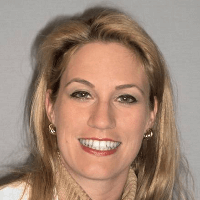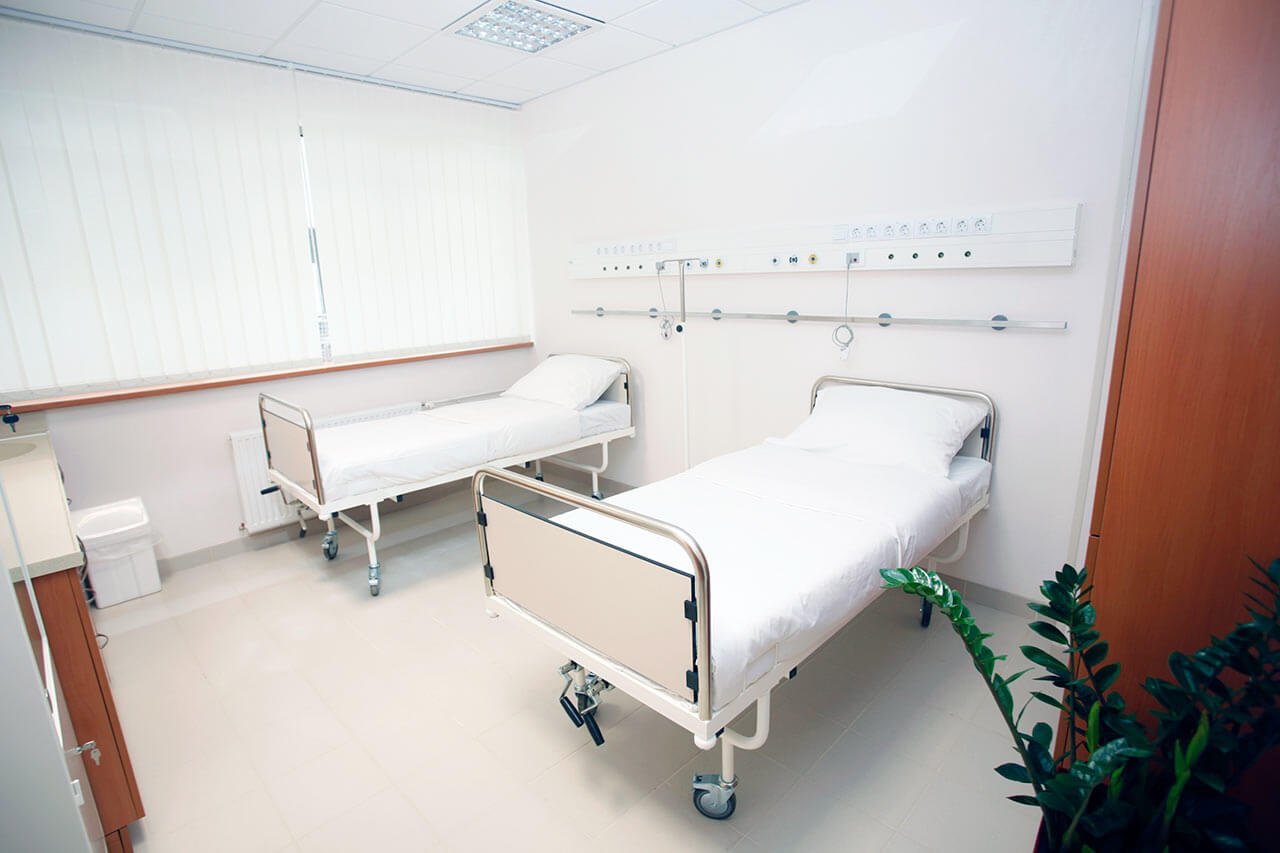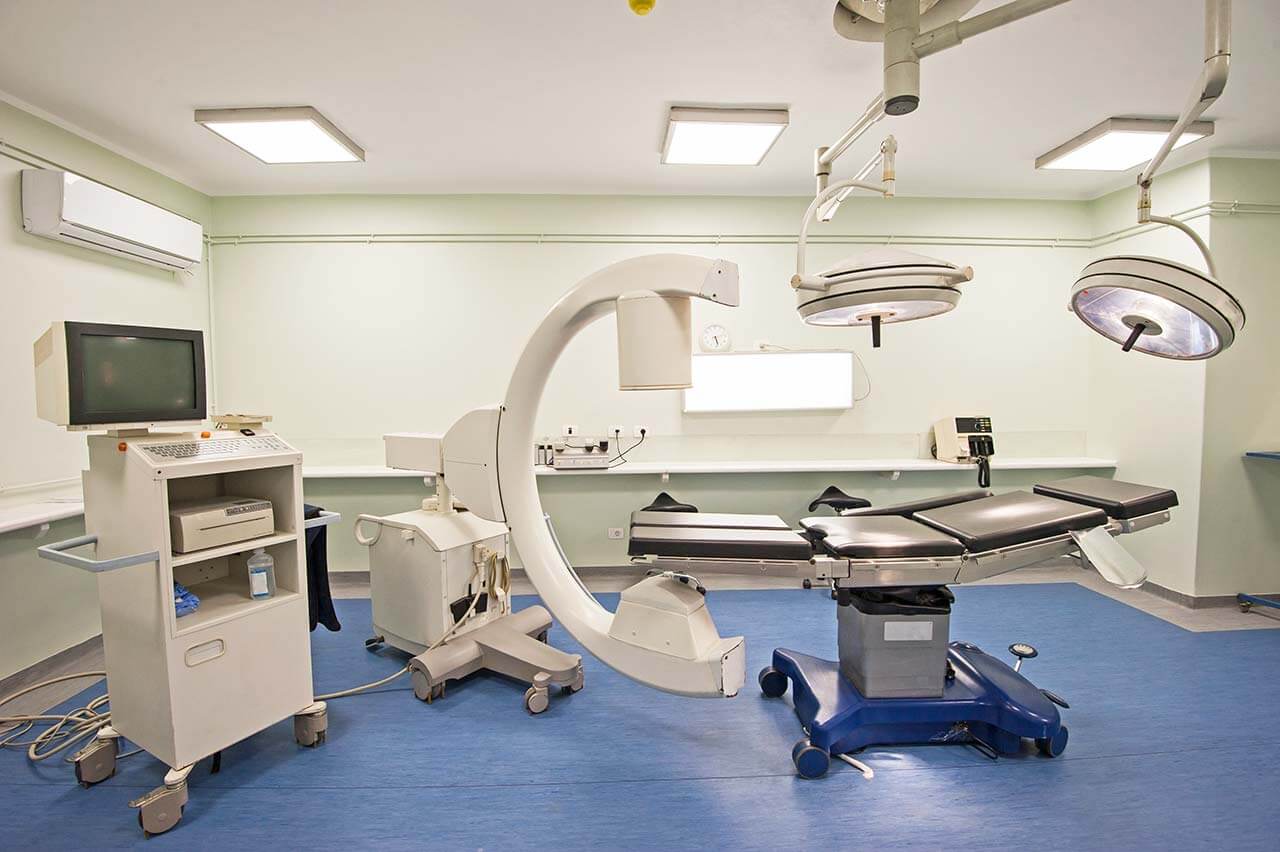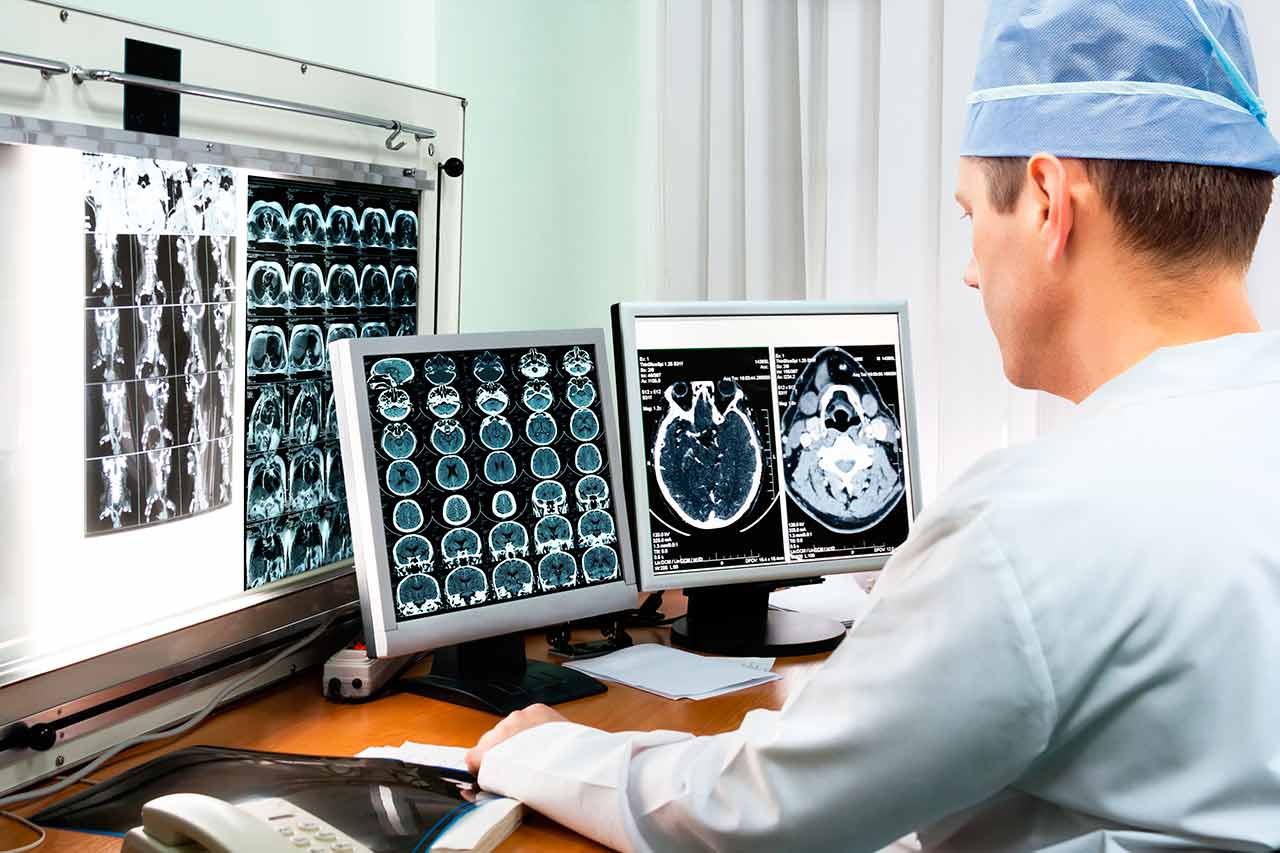
The program includes:
- Initial presentation in the clinic
- clinical history taking
- review of medical records
- physical examination
- ophthalmologic examination:
- slit-lamp examination
- pupil function tests
- ocular motility test
- ophthalmoscopy
- perimetry (visual field test)
- computer perimetry
- visometry (without correction and with correction)
- keratometry
- pachymetry
- refractometry (objective, subjective, cycloplegic)
- autorefractometry
- non-contact tonometer
- biomicroscopy
- fluorescein angiography (on indication)
- photokeratoscopy
- laser doppler retinal vessels
- electron microscopy of retinal capillaries
- laboratory tests:
- complete blood count
- biochemical analysis of blood
- blood coagulation analysis (aPTT, PT, INR)
- inflammation indicators (CRP, ESR)
- metabolic status (uric acid, total glucose, HbA1c)
- kidney function test (creatinine, urea)
- preparation according to preoperative standard
- laser retina coagulation
- symptomatic treatment
- control examinations
- nursing services
- treatment by chief physician and all leading experts
- explanation of individual treatment plan
Required documents
- Medical records
- Optical coherence tomography (if available)
Service
You may also book:
 BookingHealth Price from:
BookingHealth Price from:
About the department
The Department of Adult and Pediatric Ophthalmology at the University Hospital Muenster offers the full range of conservative and surgical treatment of eye diseases on an inpatient and outpatient basis. The experienced physicians in the department use modern methods of diagnostics and treatment in their practice, which, in combination with high professionalism, contributes to the achievement of an optimal therapeutic result. The department's specialists work in strict accordance with the guidelines of the professional societies. The department is headed by Prof. Dr. med. Nicole Eter, who has repeatedly been ranked among the top German doctors in the area of her specialization, according to the Focus magazine.
One of the significant advantages of the department is the presence of an in-house Eye Bank, which allows the doctors to urgently perform corneal transplantation, thereby restoring vision or preventing its deterioration. The Eye Bank was founded in 1995 thanks to a significant financial donation from Prof. Dr. Franz Josef Bender, a former Full-time Professor in the Department of Cardiology of the University Hospital Muenster. Today, the Eye Bank operating on the basis of the department is one of the most expert medical facilities with rich traditions.
Along with the clinical activities, great importance is attached to advanced training courses, professional retraining of the medical staff. The department carries out clinical examinations of such diseases as diabetic retinopathy and age-related macular degeneration, retinitis pigmentosa, retinopathy of prematurity, inflammatory processes and viral corneal infections, as well as studies the mechanisms of retinal dystrophy, methods of early detection of glaucoma and intralamellar keratoplasty.
The department's doctors specialize in the diagnostics and treatment of the following diseases:
- Choroidal dystrophy
- Amyloidosis
- Visual impairment (ametropia)
- Glaucoma
- Graft versus host disease
- Corneal diseases
- Cataract
- Eyelid diseases
- Leber's hereditary optic neuropathy
- Retinal diseases
- Macular diseases (including age-related macular degeneration)
- Fabry disease
- Strabismus
- Dry eye syndrome
- Lacrimal duct diseases
- Eye tumors
- Uveitis (eyelid inflammatory diseases)
- Rare diseases accompanied by eye lesion
- Other pathologies
The service range of the department includes:
- Diagnostic options
- Electrophysiological examination of vision
- Ultrasound examinations
- Tonography
- Biomicroophthalmoscopy
- Strabismus diagnostics
- Differentiated haploscopy
- Corneal pachymetry
- Optical coherence tomography
- Optical biometrics
- Mesoptometry
- Laboratory tests
- Histological examinations
- Heidelberg retinal tomography
- Visual field test (perimetry)
- GDX examination of the retinal nerve fiber layer thickness
- Photodocumentation of the examination results
- Fluorescein angiography (vascular diagnostic imaging)
- Anomaloscopy
- Intraocular pressure measurement (tonometry)
- Therapeutic options
- Laser treatment techniques
- Argon laser trabeculoplasty
- Cryocoagulation in retinopathy of prematurity
- Retinal laser photocoagulation (for example, diabetic retinopathy, vascular occlusion, retinal holes, etc.)
- Photodynamic therapy
- Refractive surgery (LASIK, LASEK, PRK, IOL)
- YAG laser iridotomy (in glaucoma)
- YAG laser capsulotomy
- Cyclophotocoagulation
- Surgical treatment methods
- Lens replacement surgery
- Retinal and vitreous surgery
- Vitrectomy
- Retinal implantation
- Corneal transplantation
- Iridectomy in glaucoma
- Cataract surgery
- Strabismus correction
- Trabeculectomy, trabeculotomy, goniotrepanation
- Surgical treatment of lacrimal duct diseases
- UV cross-linking
- Conservative treatment methods
- Injection therapy in age-related macular degeneration
- Drug treatment of glaucoma
- Drug treatment of dry eye syndrome
- Drug treatment of uveitis
- Laser treatment techniques
- Selection of contact lenses and other aids
- Consultations on orthotics, neuro-ophthalmology, pediatric ophthalmology, endocrine ophthalmopathy, lacrimal duct diseases in children and ptosis
- Other medical services
Curriculum vitae
Education
- 10.1988 - 11.1994 Study of Human Medicine at the University of Bonn.
- 07.1992 Study abroad, Charing Cross and Westminster Medical School, London, Department of Surgery (Prof. Dr. R. M. Greenhalgh).
- 10.1993 - 02.1994 Duke University, Durham NC, USA, Department of Surgery (Prof. Dr. David C. Sabiston).
- 11.1994 3rd State Examination.
Professional Career
- 12.1994 - 06.1996 Postgraduate Training at the Department of Ophthalmology, University of Bonn (Prof. Dr. M. Spitznas).
- 1996 Full approbation (admission to medical practice).
- 1994 - 1996 Assistant Physician in the Department of Ophthalmology, University of Bonn (Prof. Dr. M. Spitznas).
- 1999 Board certification in Ophthalmology.
- 1999 Senior Physician in the Department of Ophthalmology, University of Bonn (Prof. Dr. M. Spitznas).
- 1999 Senior Physician responsible for staff and budget.
- 04.2002 - 12.2002 Leading Senior Physician and Deputy Head, Department of Ophthalmology, University of Bonn.
- 2002 - 2003 Acting Head, Department of Ophthalmology, University Hospital Bonn.
- 2003 - 2010 Leading Senior Physician and Deputy Head, Department of Ophthalmology, University Hospital Bonn.
- Since 2010 Chairholder and Head of the Department of Ophthalmology at the University Hospital Muenster.
Scientific Career
- 1995 Doctorate in Medicine at the Faculty of Medicine of the University of Bonn (Note: very good). Subject: "Immunoreactive inhibin concentrations in early childish testis, ovarian and adrenal tissue", Institute of Clinical Biochemistry, University of Bonn (Prof. Dr. med. D. Klingmüller).
- 2002 Habilitation at the Faculty of Medicine of the University of Bonn. Subject: "Radiotherapy in the treatment of age-related macular degeneration".
- 11.2007 Extraordinary Professorship for Ophthalmology, University of Bonn.
- 08/2010 W3 Professorship with a management function, University of Muenster.
Additional Professional Qualifications
- 1997 Qualification as Laser Safety Officer.
- 2001 DEGUM qualification for ultrasound examinations in ophthalmology.
- 2001 Specialization in Laser Surgery in Ophthalmology.
- 2004 Fellow of the European Board of Ophthalmology (FEBO).
- 2004 Professional competence in ophthalmic interventions.
- 2008 GCP Certification (German Society for Pharmaceutical Medicine, 27.05.15, updated.
- 2009 Basic course on Good Laboratory Practice (GLP).
- 2015 Advanced course on Medical Products Directive (MPG).
Scientific and Organizational Activities
- 2011 - 2012 Member of the Working Group "National Strategy Process: Innovations in Medical Technology" of the Federal Ministry of Economics and Technology.
- Since 2012 Examiner of the Medical Association of Westphalia-Lippe.
- Since 2012 Postgraduate Training Officer of the Medical Association of Westphalia-Lippe.
- Since 2012 Elected Member of the Board of the Retinological Society.
- Since 2013 Expert on the Scientific Advisory board of the Journal "Der Onkologe".
- Since 2014 Elected Member of the Joint Board of the German Ophthalmological Society (DOG).
Awards and Honors
- 2001 Best Paper Award Winner, American Society for Retina Specialists.
- 2007 Joint Project Funding of the Federal Ministry for Education and Research (BMBF) (three years).
- 2008 Research Award of the German Ophthalmological Society.
- 2008 Secundo loco, W3 in Ophthalmology, University Hospital Marburg.
- 2010 Research Grant of the German Research Foundation (DFG) in individual application (three years).
- 2010 Primo loco, W3 Professorship in Ophthalmology, University Hospital Muenster.
- 2010 Focus List of Top Physicians (2010, 2011, 2012, 2013, 2014, 2015).
- 2011 Research Grant of the Interdisciplinary Centre for Clinical Research (IZKF).
- 2013 Best Paper Award, Annual Conference of the German Ophthalmological Society.
- 2014 Research Grant of the IMF.
Research Focuses
- Pathophysiology and therapy of age-related macular degeneration.
- High-resolution imaging in pigment epithelial detachments.
- In vivo molecular imaging of retinal structures.
- Antiangiogenesis research in animal models.
- Nanotechnology at the ocular fundus.
- Vitreoretinal surgery.
- Cataract surgery.
- Glaucoma surgery.
- Keratoplasty.
- Eyelid and lacrimal duct surgery.
- Eye muscle surgery.
- Laser therapy of the anterior and posterior eye segments.
- Diagnostics and treatment of the anterior and posterior eye segments.
Reviewer Activities in Scientific Journals
- Der Ophthalmologe (Editorial Board Member).
- Spektrum der Augenheilkunde (Editorial Board Member).
- Der Onkologe (Advisory Board Member).
- Investigative Ophthalmology and Visual Sciences.
- Graefe’s Archive for Clinical and Experimental Ophthalmology.
- Retina.
- Acta Ophthalmologica.
- Klinische Monatsblätter für Augenheilkunde Ophthalmologica.
- Current Eye Research.
Photo of the doctor: (c) Universitätsklinikum Münster
About hospital
According to the Focus magazine, the University Hospital Muenster ranks among the top German hospitals!
The hospital belongs to the most prestigious medical institutions in Germany. The hospital is distinguished by a high professionalism of its doctors, state-of-the-art technological equipment and the availability of the most advanced diagnostic and therapeutic capabilities ensuring the first-class medical services. The hospital integrates more than 30 specialized departments, as well as numerous institutes and centers, thus representing all the specialties of modern medicine. The hospital treats more than 64,000 inpatients and 500,000 outpatients every year, which is an indisputable evidence of the highest quality of medical services.
The medical team of the hospital, consisting of more than 10,000 employers, is committed to preserving the physical health of patients, providing them with psychological support and compassionate attitude throughout the entire therapeutic process.
The hospital has succeeded in all specialties of medicine, however, main areas of its specialization include oncology, treatment of cardiovascular, neurological diseases, transplant medicine, psychiatry and psychosomatics, pediatrics with a special focus on rare diseases in children, traumatology, orthopedics, prenatal medicine, and reproductive medicine. In addition, key importance is given to scientific research and training of medical students, so that the specialists of the hospital make a momentous contribution to the development of medicine as a whole.
Photo: (с) depositphotos
Accommodation in hospital
Patients rooms
The patients of the University Hospital Muenster live in single or double rooms. The rooms are made in bright colors and modern design. Each room has an ensuite bathroom with shower and toilet. The standard room includes an automatically adjustable bed, a bedside table, a table and chairs for receiving visitors, a telephone and a TV. The hospital offers access to the Internet. If desired, the patient can also stay in the enhanced-comfort room.
Meals and Menus
The patients of the hospital are offered a tasty and balanced three meals a day: breakfast, lunch and dinner. The menu always features diet and vegetarian dishes. If for any reason you do not eat all the food, you will be provided with an individual menu. Please inform the medical staff about your dietary preferences prior to the treatment.
Further details
Standard rooms include:
Religion
Religious services are available upon request.
Accompanying person
During the inpatient program, an accompanying person may stay with you in a room or at the hotel of your choice.
Hotel
During the outpatient program, you can live at a hotel of your choice. Managers will help you to choose the most suitable options.
The hospital offers a full range of laboratory tests (general, hormonal, tests for infections, antibodies, tumor markers, etc.), genetic tests, various modifications of ultrasound scans, CT scans, MRI and PET / CT, angiography, myelography, biopsy and other examinations. Treatment with medications, endoscopic and robotic operations, stereotaxic interventions is carried out here, modern types of radiation therapy are also used. The hospital offers patients all the necessary therapeutic techniques.
- Stereotactic radiotherapy, including intracranial one
- Thulium and holmium laser enucleation of the prostate
- HIPEC for peritoneal cancer
- Imlantation of mechanical heart support systems
- Assisted reproductive technologies
These are arthrosis and sports injuries of the joints, benign neoplasms and malignant tumors of various localizations, spinal injuries, osteoporosis, benign prostatic hyperplasia, urolithiasis, inflammatory bowel disease and other pathologies.
- Traumatology and hand surgery
- Urology
- General and abdominal surgery
- Cardiology and cardiac surgery
- Obstetrics and gynecology
The hospital's team consists of more than 10,000 highly qualified employees.






